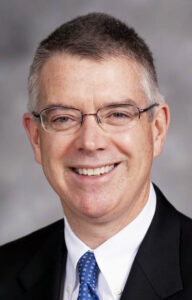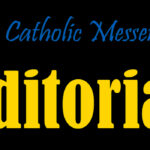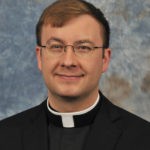By Tim Millea, MD
Catholic Health Care Today column

We are finishing up the season of Advent, which is bookended by two of our most enjoyable holidays. The names of those holidays, Thanksgiving and Christmas, reflect their beauty and importance. “Thanks” and “giving” are traits we should cultivate and practice. Christmas celebrates God becoming flesh, giving birth to the gift of our salvation.
This is a time of year for memories and stories, recounted over the Thanksgiving dinner table and in Christmas cards. It is a time of reflection to appreciate the good gifts received and to learn from trials and errors. This is applicable to the field of medicine as well. Medicine is ever evolving and requires ongoing analysis and reflection with simple questions: “What works?” “What doesn’t work?” “How can we do better?”
Changes in medical care have accelerated in the past several decades but usually remain deliberate and careful. That approach allows greater confidence in the effectiveness, reliability and safety of the test or treatment in question. The past 50 years are an excellent time span for review of and reflection on changes in health care — good and bad.
What are the “good news” developments in medicine since 1972? The beginning of a dramatic change in cardiac care arrived in 1977 with the development of coronary angioplasty. Within the next decade, the introduction of cardiac stents further enhanced the care of heart disease.
The prognosis for patients diagnosed with leukemia has dramatically improved because of treatment advances. In the mid-1970s, the five-year survival rate for leukemia was 34%. It is now 70%.
The speed and accuracy of making a diagnosis often depends upon imaging studies. The commercial introduction of CT scanners in 1972 and MRI scanners in 1980 revolutionized the ability to visualize the interior of the body as never before.
These and many other advances over the past half-century have increased the average American life expectancy from 71 years in 1972 to 77 years in 2020. We have justifiable reasons to be grateful for medicine’s positive impact on our lives. However, an objective look at the past 50 years reveals “bad news” as well.
We are quickly approaching the 50-year anniversary of the Roe v. Wade decision in 1973. Since that dark day, at least 64 million surgical abortions have been performed in the U.S. That figure is likely a conservative estimate, as the reporting systems in the abortion industry are inconsistent. In addition, the increasing use of chemical abortions is under-reported, even though that method now accounts for more than half of all abortions in America. However, even with the lowest estimates, the statistics are appalling. Abortion prevented one in five lives conceived in the past 50 years in the U.S. from being born because of physician cooperation.
At the opposite end of life, a similarly disturbing development has gradually gained a foothold in America. In 1997, Oregon legalized physician-assisted suicide. Since then, nine states and the District of Columbia have passed similar legislation. An accurate count of these deaths is even less reliable than that for abortions. However, Oregon’s attempts at reporting statistics are revealing. An annual report entitled “Death With Dignity Act Data Summary” reports that 1,905 lives have ended in Oregon since 1998 with the willing cooperation of physicians. Looking to our neighbors north of the border, we can see the disastrous results of unrestrained assisted suicide and euthanasia. In Canada, an average of 28 people die at the hands of a physician every day, accounting for nearly 4% of all Canadian deaths.
It is abundantly true that developments in science and medicine have yielded remarkable improvements in our lives. However, medical care denotes two components: “medicine” and “care.” It is apparent that our society is a victim of an emphasis on the former and demonstrated disregard for the latter. We may have all the technological benefits in health care today, but that is of little consequence without recognition of ethical and moral principles. Each person has received two gifts from God, life and time, from conception to natural death. Any violation of those gifts by medical “intervention” is unethical and immoral. We may have the most effective medical methods we can imagine but if a life is not allowed to be born or is not allowed to continue living as God intended, are we truly caring and compassionate?
Faith and science are not an “either/or” proposition. They are a “both/and” synergy. If the faith factor is ignored, our lives may be longer but will not flourish as they should. The words of St. John Paul II summarize this very clearly: “Science can purify religion from error and superstition. Religion can purify science from idolatry and false absolutes.”
Please pray for the purification of our health care system and the recognition that medicine requires attention to many components of our life: physical, emotional, social and spiritual.
(Dr. Tim Millea is president of the St. Thomas Aquinas Medical Guild and a member of St. Paul the Apostle Parish in Davenport.)











